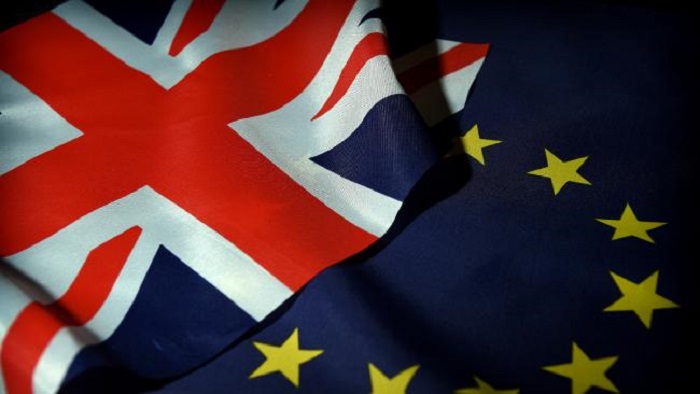Alwaght- The land of lords today marks a historic social and political event by casting “in or out” votes. An event that sometimes put the British conservatives in the front of Brussels officials and even in some cases caused the bilateral meetings end in verbal clashes.
Some with a superficial view of London referendum see Britain's exit from the EU as impossible. But after increase in David Cameron’s interactions with EU's members, gradually some slight signs of possible breaking up of Britain with the European bloc have appeared.
Of course, the British Prime Minister David Cameron is well aware what risks the exit from the EU could bring about for London. First, the troubles appear to the UK, which includes four nations of England, Scotland, Wales, and Ireland. Then Britain would experience an identity chaos.
A revolt of Scotland is expected to take place, too. Then comes turn of Ireland which rises up with its ideological enthusiasm, causing a soft split of Britain. Let's not forget that last year, Scotland organized referendum on separation from Britain, and Cameron, the resident of number 10 house, insulted the Scottish politicians and officials. So, observably, the grounds for Scotland’s breaking up with Britain do exist. Once the Britons vote out of the EU, Scotland’s “uprising” could ensue.
We have to refer to the economy in Britain. Shift of currency from the pound to Euro for many British high profile people is unfavorable. Even for those who for the first time came to live in Britain it is so difficult to see their currency gradually giving place to the EU's Euro, because the Britons are nationalist people by nature and care about their traditions. It is from this aspect that Britain is different from other European nations in terms of social behavior.
If we want to go deep to discover the reasons behind holding referendum, we have to look at the country’s middle classes and what happened during the recent years. Certainly, the David Cameron-led Conservative Party after win over Edward Miliband, the former leader of Labor Party, could not predict influx of 250,000 refugees entering Britain. Only in 2014, between 250,000 and 270,000 immigrants went to Britain. This came while only 80,000 to 82,000 people left Britain to other countries. Here London faces an excess in terms of balance of getting and giving immigrants. So, meanwhile, it must be said that one of the major and perhaps the most influential factors pushing the British referendum is the immigration element. In other words, the British government wants to involve the people in the process of making decisions on refugees and immigration.
Some analysts suggest that David Cameron cannot take more privileges from the EU. So, by engaging people in decision making, he seeks creating maximum partners for his policies should the country faces problems of immigration after referendum.
Meanwhile, some argue that like many countries, Britain can avoid accepting immigrants and even refugees. The problem is that if London goes under EU, it has to agree with the opinions of a bloc with 28 members. Today, a majority of immigrants to Britain are from the EU countries. The major concern of people and officials of the country is that how they could block entry of Iraqi and Syrian refugees so that the country is not hit by terrorist attacks like those of Paris and Brussels.
Concerning the case, Cameron has to deal with the right-wing extremists who last week killed in public Jo Cox, the member of parliament from Labor Party and the head of Friendship with Syria Group in the country's parliament. Without doubt, this layer of the British community in addition to agreement with exit from the EU are against Cameron’s policies. For example, Boris Johnson, the former London mayor, who leads the anti-Cameron camp, is one of the major opponents of immigration to Britain. He in past few weeks in his campaign expressed views against the EU and Cameron’s decisions.
On the other side of London argument are the 27 states which are not unanimous in ideas on stay or exit of London from the bloc. If we want to be clear on the case, we have to consider the fact that currently the EU is a “Franco-German club.” The leading figure who has the last word in terms of ideas and policies is the German Chancellor Angela Merkel. Once decisions are made by Merkel, they go into effect after confirmation from French President François Hollande.
It is for this reason that the British PM strove to extract privileges from these powerful and influential leaders rather than the all 27 EU states, to return with full hands from Brussels to justify his pro-EU stances to the British public opinion, both supporters and opponents of EU. Cameron’s cabinet includes Michael Gove, the minister of justice and leader of “Out Campaign”, and the Secretary of State for Foreign and Commonwealth Affairs Philip Hammond who is too against stay in the EU. This issue could push Cameron to resignation should he fails to keep in the EU.
All in all, the referendum on EU exit has divided the British society into two poles. The analysts suggest that this condition has been unprecedented in Britain, so it could bring some dangers to David Cameron.
It must be approved that with entry of European immigrants to Britain the country could grow concerns about spoiled security, identity crisis, and social, economic and culture setbacks. On the other side, leaving the EU could impose heavy costs on Britain.
However, although London holds good economic relations with the 53 Commonwealth States, the EU wouldn't forsake hopes of stay of London.
Despite the results of polls which are not 100 percent guaranteed, it is expected that the pro-EU campaign wins slightly over the opposing side. But London should wait for right-wing aftermaths.



























